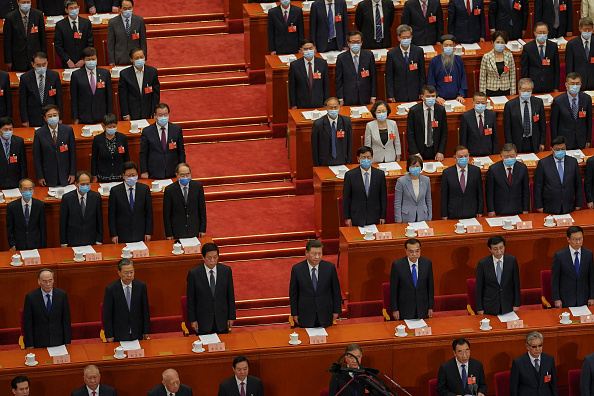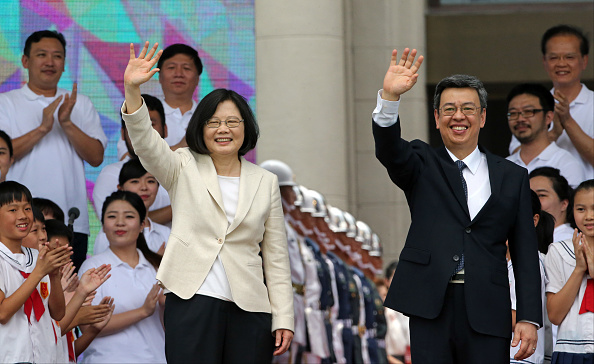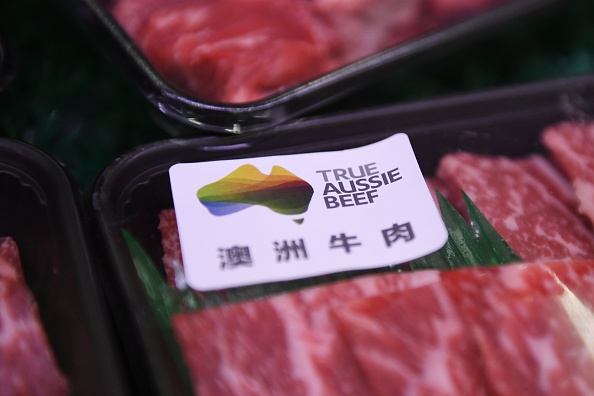
 Pandemic Decisions
Pandemic DecisionsChina's biggest political event of the year— the annual "Two Sessions"— kicked off this Thursday after the pandemic delayed the proceedings by two months. The annual meetings will cover the year's biggest challenges— including economic instability, rising unemployment, and increasing hostilities with the United States. The central government is also expected to put forward a resolution on a new Hong Kong security law that has drawn concern from international observers. The meetings will also cover issues related to public health, just days after, China agreed to an independent evaluation of the coronavirus response, which will occur once the pandemic subsides.
While tensions between China, the U.S., and the World Health Organization (WHO) remain acrimonious, at the World Health Assembly this week, President Xi pledged $2 billion in aid over two years to help other countries respond to the coronavirus. This followed President Trump's announcement that the U.S. would halt WHO funding over the organization's alleged China-bias. The U.S. also accused the organization of helping China cover up the outbreak, with President Trump saying China is blaming "anyone but itself" for the virus's spread. In response, China's Foreign Ministry spokesperson Zhao Lijian accused the U.S. of "distorting the facts, contradicting itself, blaming others, and undermining international cooperation in fighting the pandemic."
As the coronavirus rages on, U.S.-China backchannels have also started to break down. Personal and behind-the-scenes meetings play a significant role in holding together the U.S.-China relationship, but diplomatic correspondence has been curtailed since the coronavirus's spread, even threatening the U.S.-China trade deal. Neither country has come out strong from the coronavirus, says David Shambaugh, the Gaston Sigur Professor of Asian Studies, Political Science & International Affairs at George Washington University. Read his full article on China-US Focus.
 Cross-Strait Tensions
Cross-Strait TensionsTsai Ing-wen was inaugurated for her second term this week, after being elected as President of the Republic of China in January of this year. In her inauguration speech on Wednesday, President Tsai called on Taipei and Beijing to find "a way to coexist," while continuing to reject China's 'one country, two systems' policy. In response, a Beijing spokesperson said they would "never tolerate any act of splitting the country, and will not tolerate any external forces interfering in China's internal politics." Tsai also expressed support for protesters in Hong Kong to highlight concerns over Beijing's increasing pressure on civil liberties.
U.S. Secretary of State Mike Pompeo and Deputy National Security Advisor Matt Pottinger congratulated Tsai on her second term, raising ire from China. China's Defense Ministry responded angrily, saying that Pompeo's message "seriously endangered relations between the two countries and two militaries, and seriously damaged peace and stability in the Taiwan Strait."
As Taiwan begins its next presidential term, Taiwan Semiconductor Manufacturing Company is making efforts to shift its production to the U.S. The chipmaker reported it would build an advanced factory in Arizona, which is good news for the Trump administration as it tries to block Huawei and reduce America's technological dependency on China. Senate Democrats, however, raised questions over the factory's shift in production, inquiring if the White House had given the Taiwanese company subsidies or tax breaks.
 A New (Trade War) Frontier
A New (Trade War) FrontierChina and Australia seem to be moving closer to a trade war, as the two neighbors trade barbs and battle over supply chains, with Chinese state media calling Australia "gum stuck to the bottom of China's shoe." The hostilities started not long after Australian Prime Minister Scott Morrison pressed China for an open assessment over the origins of the coronavirus. Many say that China, which is Australia's top importer in a number of sectors, is now using its trading power as punishment, although China cites export compliance and dumping issues for banning both the exports.
Australian barley and meat products have taken a particularly hard hit after Beijing imposed a whopping 80% tariff on Australian barley, amounting to almost $500 million a year. China is Australia's top barley importer, having imported over 50% of Australian barley exports in 2018-2019. In addition to barley, China also paused meat imports from four Australian meat processing plants last week, putting great economic and agricultural stress on its nearby neighbor.
Prepared by China-US Focus editorial teams in Hong Kong and New York, this weekly newsletter offers you snap shots of latest trends and developments emerging from China every week, while adding a dose of historical perspective.
- 2020-05-16 Fractures and Fault Lines
- 2020-05-09 Attacks and Counterattacks
- 2020-05-02 Retaliatory Actions
- 2020-04-24 Sinking Perceptions
- 2020-04-18 Pandemic World
- 2020-04-11 The Long Road Back to Normalcy
- 2020-04-03 Shifting Gears
- 2020-03-28 Cooperation or Confrontation
- 2020-03-20 World in Turmoil
- 2020-03-13 Global Emergency
- 2020-03-06 Global Strains
- 2020-02-28 Coronavirus Gone Global
- 2020-02-22 The Virus Continues
- 2020-02-15 Asserting Control
- 2020-02-08 A Novel Outbreak
- 2020-01-31 Global Health Emergency Declared
- 2020-01-24 Celebrations Grounded
- 2020-01-17 Signed, Sealed, Delivered
- 2020-01-10 Ink the Deal
